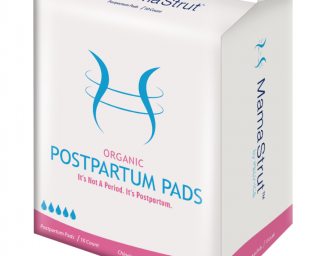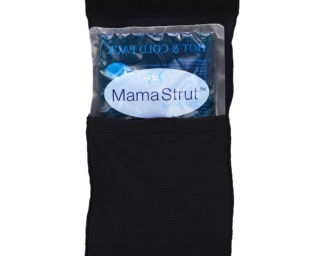Woman cannot live by coffee alone. As much as I wish this were true, my addiction to daily quad-shot iced Americanos can only support me physically and emotionally for so long. And for new moms, a vitamin and nutrient rich diet is more vital than ever.
The focus of women’s nutrition has always been on the during pregnancy phase. Prenatal, prenatal, prenatal. It is important to make sure you’re providing a safety net for you and the baby by supplementing your diet because adequate levels of vitamins and nutrients lowers the risk of fetal and infant mortality, intra-uterine growth retardation, low birth weight and premature births; it also lowers the risk of birth defects, poor brain development, and the risk of infections.
What is less talked about it the fact that breastfeeding is more nutrient and energy draining on a mother than growing a baby for nine months. Among women exclusively breastfeeding their infants, the energy demands of lactation require taking in 300 kcal more per day than the last two trimesters of pregnancy.
“Postpartum nutrition is highly overlooked in our society. My first postpartum I basically ate bread, got nutrient deficient, and barely had energy to enjoy my baby. Eating healthy fats, lots of vegtables, pure protein, & utilizing good quality nuritional shakes can prevent fatigue, increase breastmilk, and correct postpartum depression.” –Anna Nieboer (CMN)
Let’s say, hypothetically, that your diet is perfect. You eat the recommended 2700 kcal/day, consuming vitamin D fortified food, nutrient-rich leafy greens, whole-grains, lots of lean protein, and calcium-rich dairy. It’s possible that you’re consuming enough of the right stuff to make sure that your baby’s diet needs are met, as well as getting enough to keep your own energy up. But let’s step back into reality for a second, imagine you have a dairy allergy, already have one other child, and you ate a banana on your way to work, which might be the only thing you eat for hours. That perfectly fortified 2700 kcal diet is looking pretty far away.
When you don’t meet the nutrient demands of creating breast milk from your diet, your body will transfer available nutrients from tissues organ and muscle tissues, which can have serious and lasting consequences for energy levels and body function. Even mood and susceptibility to depression are possible side effects of depletion. Like a prenatal, a daily postnatal vitamin can create that safety net that will protect your health. Though a lot of women think that simply taking a prenatal while breastfeeding will do the trick, there are several key things needed for postpartum that are missing in a prenatal vitamin. Calcium, magnesium, zinc, vitamin B6, and folate will be especially effected. Vitamin A is crucial for newborns, but is not as soluble for transference through breast milk, so a doctor will often recommend a liquid supplement or shot for the baby.
Women who don’t eat dairy, eggs, and/or meat, woman who have had bariatric surgery like a gastric bypass, or those with anemia and other health conditions prior to pregnancy are at greater risk for vitamin deficiency. A helpful way to get a comprehensive blueprint to your body is to have blood work done that can tell you where you might be lacking, and specifically target those areas with doctor prescribed vitamins or over the counters.
Since caffeine is unfortunately not a food group, we have to find other ways to take care of our baby’s and our bodies by building the foundations of good nutrition.
 Use code Laborday2024" for $15 off $100
Use code Laborday2024" for $15 off $100






